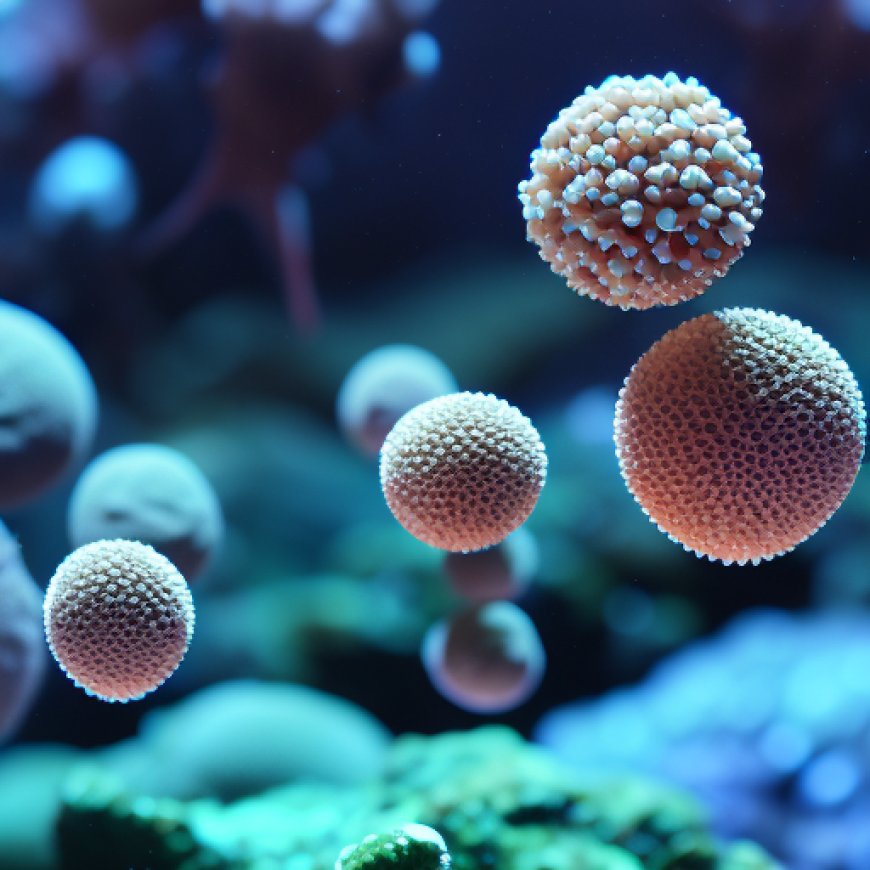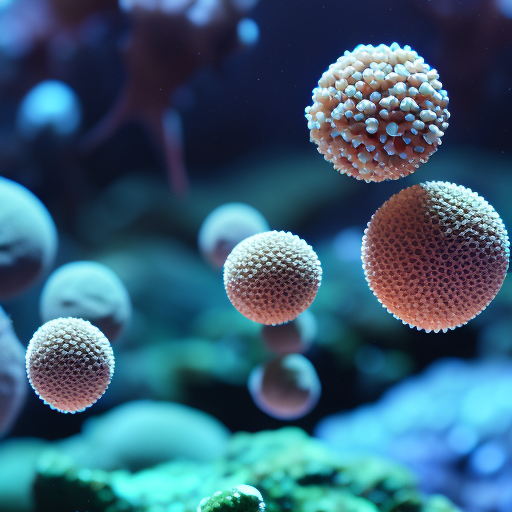Research identifies microorganisms that may be essential to the survival of coral reefs threatened by climate change | About | University of Stirling
Research identifies microorganisms that may be essential to the survival of coral reefs University of Stirling


Microorganisms Play Vital Role in Coral Health and Resilience

A recent study has revealed the significant role that certain microorganisms play in maintaining the health and resilience of coral reefs. Similar to the human microbiome, these microorganisms provide essential amino acids and B-vitamins to the coral host. The research team also identified specific microbes that contribute to the cycling of carbon and nitrogen within the coral species Acropora kenti, which are vital nutrients required for all life.
Functional Redundancy Ensures Microbial Community Health
The study found that various microbes encoded similar metabolic pathways, leading to functional redundancy. This redundancy ensures that even if some members of the microbial community are lost, the community as a whole can continue to perform in a healthy way. This discovery sheds light on the resilience of coral microbiomes and their ability to adapt to changing environmental conditions.
Mechanisms of Microbe-Coral Host Relationship
The researchers also observed how different microbes establish a relationship with their coral host. They identified several mechanisms through which the A. kenti microbiome can evade the coral’s immune system, allowing for a mutually beneficial relationship to be maintained. Understanding these mechanisms is crucial for preserving coral health and resilience.
Environmental Factors Shape Coral-Microbiome Associations
The study revealed that changes in the surrounding seawater, such as temperature and concentrations of dissolved inorganic nitrogen, were key factors in shaping the associations between A. kenti and its microbiome. This information is particularly important as corals face accelerated environmental changes due to anthropogenic climate change and pollution. Without adaptation, corals may experience mass mortality.
Contribution to Sustainable Development Goals
- SDG 14: Life Below Water – This research contributes to understanding the complex interactions within coral ecosystems, which is essential for the conservation and sustainable management of marine biodiversity.
- SDG 15: Life on Land – By studying the role of microorganisms in coral health and resilience, this research provides insights into the interconnectedness of terrestrial and marine ecosystems, highlighting the importance of preserving both.
The study titled A genome-centric view of the role of the Acropora kenti microbiome in coral health and resilience was published in the Springer Nature journal, Nature Communications. The authors of the study include Dr Messer, Professor Gene Tyson, Director of the Centre for Microbiome Research at Queensland University of Technology, Professor David Bourne of the Australian Institute of Marine Science and James Cook University, and their colleagues.
The research was funded by the Australian Research Council and the Queensland Government DSITIA Accelerate Partnerships award to the University of Queensland on behalf of the Australian Institute of Marine Science, the Australian National University, Bioplatforms Australia, the Great Barrier Reef Foundation, the Great Barrier Reef Marine Park Authority, and James Cook University.
SDGs, Targets, and Indicators
| SDGs | Targets | Indicators |
|---|---|---|
| SDG 14: Life Below Water | Target 14.2: Sustainably manage and protect marine and coastal ecosystems | – No specific indicators mentioned in the article |
| SDG 15: Life on Land | Target 15.1: Ensure the conservation, restoration, and sustainable use of terrestrial and inland freshwater ecosystems | – No specific indicators mentioned in the article |
| SDG 3: Good Health and Well-being | Target 3.4: By 2030, reduce by one-third premature mortality from non-communicable diseases through prevention and treatment and promote mental health and well-being | – No specific indicators mentioned in the article |
| SDG 13: Climate Action | Target 13.3: Improve education, awareness-raising, and human and institutional capacity on climate change mitigation, adaptation, impact reduction, and early warning | – No specific indicators mentioned in the article |
The article does not explicitly mention any Sustainable Development Goals (SDGs), targets, or indicators. However, based on the content of the article, we can make some connections to relevant SDGs and targets.
1. Which SDGs are addressed or connected to the issues highlighted in the article?
- SDG 14: Life Below Water – The article discusses the importance of coral health and resilience, which is directly related to marine ecosystems.
- SDG 15: Life on Land – The article mentions the role of microorganisms in providing essential nutrients to coral hosts, highlighting the interconnectedness of terrestrial and marine ecosystems.
- SDG 3: Good Health and Well-being – The article briefly mentions the potential implications of coral mortality due to climate change and pollution, which can have indirect effects on human health and well-being.
- SDG 13: Climate Action – The article emphasizes the need for corals to adapt to changes in their environment caused by anthropogenic climate change.
2. What specific targets under those SDGs can be identified based on the article’s content?
- Target 14.2: Sustainably manage and protect marine and coastal ecosystems – The article highlights the importance of understanding the role of microorganisms in coral health and resilience, which is crucial for the sustainable management and protection of marine ecosystems.
- Target 15.1: Ensure the conservation, restoration, and sustainable use of terrestrial and inland freshwater ecosystems – The article emphasizes the interconnectedness of terrestrial and marine ecosystems through the role of microorganisms in providing essential nutrients to coral hosts.
- Target 3.4: By 2030, reduce by one-third premature mortality from non-communicable diseases through prevention and treatment and promote mental health and well-being – Although not explicitly mentioned in the article, the potential implications of coral mortality on human health and well-being can be connected to this target.
- Target 13.3: Improve education, awareness-raising, and human and institutional capacity on climate change mitigation, adaptation, impact reduction, and early warning – The article highlights the need for corals to adapt to changes in their environment caused by anthropogenic climate change, which aligns with this target.
3. Are there any indicators mentioned or implied in the article that can be used to measure progress towards the identified targets?
No specific indicators are mentioned or implied in the article that can be used to measure progress towards the identified targets. The article primarily focuses on the role of microorganisms in coral health and resilience, without providing specific metrics or measurements for progress.
Behold! This splendid article springs forth from the wellspring of knowledge, shaped by a wondrous proprietary AI technology that delved into a vast ocean of data, illuminating the path towards the Sustainable Development Goals. Remember that all rights are reserved by SDG Investors LLC, empowering us to champion progress together.
Source: stir.ac.uk

Join us, as fellow seekers of change, on a transformative journey at https://sdgtalks.ai/welcome, where you can become a member and actively contribute to shaping a brighter future.







